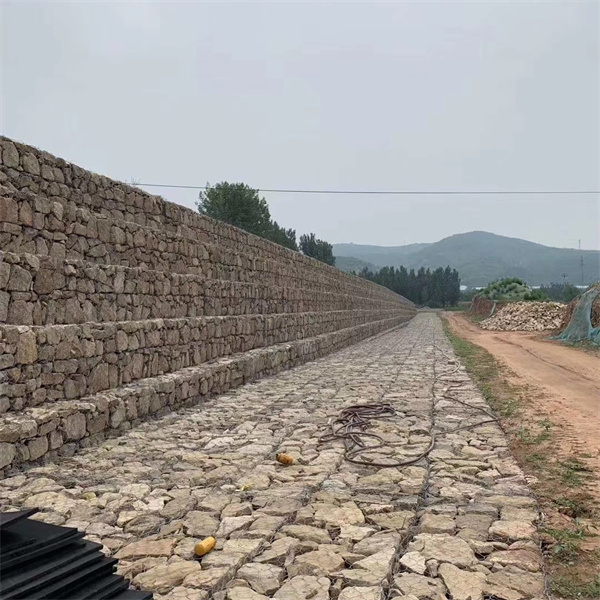Oct . 19, 2024 13:57 Back to list
gabion wall failure suppliers
Understanding Gabion Wall Failure Causes and Solutions from Suppliers
Gabion walls, often utilized in various civil engineering projects due to their durability and aesthetic appeal, consist of wire mesh baskets filled with rocks or other materials. While these structures are generally stable and effective in controlling erosion, managing slopes, and providing structural support, they can sometimes fail. Understanding the causes of gabion wall failure is essential, particularly for suppliers and engineers involved in the design and installation of these structures.
Common Causes of Gabion Wall Failure
1. Poor Design and Planning One of the primary reasons behind gabion wall failure is inadequate planning and design. A lack of understanding of site conditions such as soil types, drainage patterns, and anticipated loads can lead to unstable structures. Suppliers must emphasize the importance of thorough site analysis before recommending or providing gabion materials.
2. Erosion and Water Flow Water is a significant factor affecting the stability of gabion walls. Excessive water flow can cause soil erosion behind the wall or undermine its foundation. Inadequate drainage provisions can lead to water buildup and pressure, further exacerbating the situation. Suppliers should advocate for proper drainage techniques, including the installation of weep holes or drainage pipes, to mitigate these risks.
3. Material Quality The quality of materials used in gabion walls is crucial. Poorly manufactured gabion baskets or inferior-quality fill materials can lead to wall degradation over time. Suppliers should ensure that they provide high-quality materials that meet industry standards to reduce the likelihood of failure.
4. Vegetation and Root Systems While vegetation can help to stabilize soil, extensive root systems can compromise the integrity of gabion walls. Roots may penetrate through the gabion structure, forcing the stones apart and leading to structural failure. Additionally, the weight of large plants or trees can introduce extra loads to the wall. Suppliers should advise on appropriate landscaping choices and monitor the growth of vegetation near gabion walls.
5. Nailing Down the Structure Gabion walls need proper anchoring, especially when they are built on steep slopes. Inadequate anchoring can lead to slippage or movement of the wall materials over time. Suppliers can provide guidance on appropriate anchoring systems and techniques suited to different environmental conditions.
gabion wall failure suppliers

Prevention and Solutions
To minimize the risks of gabion wall failure, certain strategies can be employed from the outset. Suppliers play a pivotal role in this preventative approach by offering comprehensive solutions that include
- Robust Engineering Assessments Encouraging clients to engage with professional engineers for a robust assessment of site conditions can assure a well-informed design that takes into account various environmental factors.
- Quality Control Using high-quality materials is non-negotiable for supplier-led projects. This includes offering certification for the materials provided and ensuring that installation techniques align with best practices.
- Regular Maintenance Establishing a maintenance plan is crucial for the longevity of gabion walls. Regular inspections can identify potential issues early, such as soil erosion or damage to the gabion baskets. Suppliers can implement maintenance services or support clients in creating their own maintenance schedules.
- Training and Education Suppliers are in a unique position to educate contractors and clients on proper installation techniques and the importance of following engineering guidelines. Providing training sessions and resources can lead to better construction practices and reduce the likelihood of structural failures.
Conclusion
Gabion walls are a valuable tool in modern engineering, but like all structures, they require careful consideration to avoid failure. Suppliers play a critical role in this process, from the design and materials selection to education and ongoing maintenance. Understanding the common causes of failure and implementing preventive measures can ensure the longevity and effectiveness of gabion walls, ultimately leading to successful projects and satisfied clients. By prioritizing quality, education, and design rigor, suppliers can contribute significantly to the stability and resilience of these essential structures in various civil engineering applications.
-
The Role of Galvanized Gabion Mesh in Riverbank Protection
NewsJun.26,2025
-
The Role of Gabion Basket Raised Bed in Sustainable Gardening
NewsJun.26,2025
-
Quality Assurance of Wire Mesh Gabion Baskets
NewsJun.26,2025
-
Installation Guide for Welded Gabion Box
NewsJun.26,2025
-
How to Choose the Right Gabion Box
NewsJun.26,2025
-
Different Types of Gabion Wire Mesh
NewsJun.26,2025
-
Why PVC Coated Gabion Mattress Is the Best Solution for Long-Term Erosion Control
NewsMay.23,2025






